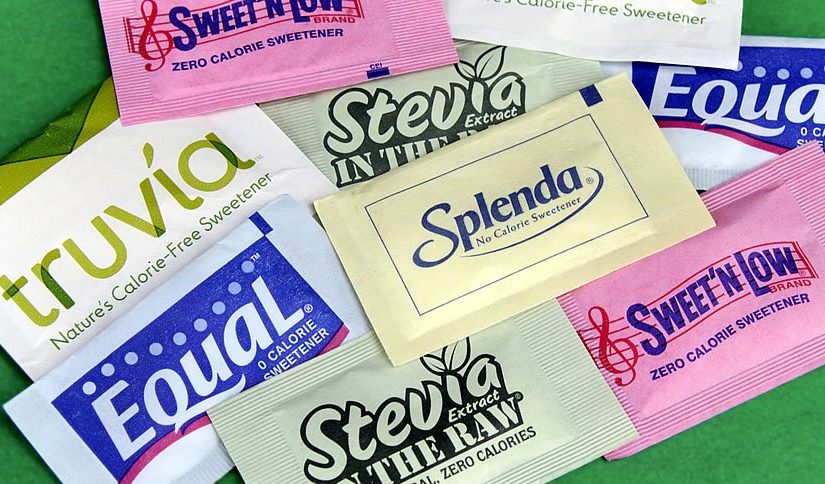Most people on the diet avoid or at least decrease the amount of sugar they consume and substitute it with artificial sweeteners. Some fitness “gurus” are against artificial sweeteners because they believe in their harmful effects. As for me, I think moderation is the key. Ideally, you should stick with natural calorie-free alternatives like Stevia and Monk fruit, but consuming “artificial sweet” few times a week is better, in my opinion, that consuming an all natural sugar, and definitely not going to kill you.
Let’s take a look at some facts
Saccharin
This compound was found in 1878 by researcher Constantin Fahlberg. In 1978 studies in rats linked this sweetener to a bladder cancer in rodents. For a while, saccharine was claimed to be harmful to humans but numerous human-based studies have shown that cancer in rodents doesn’t translate into cancer in humans. In 2000, FDA cleared saccharine as a generally safe substance to consume within daily dosage limits.
While saccharine is a calorie-free sweetener, it does raise blood glucose levels to some degree. It can also cause GI distress in some people, allergic reactions and headaches.
Aspartame
Despite the loud claims of the opponents of aspartame who claim it causes cancer, there is no actual evidence to support such a conclusion. To this date, the only “evidence” we have is several studies in rats showing that in some cases, extremely high dosages of aspartame were linked to the development of the brain tumors. That being said, there is no evidence that supports such claims in humans. Agencies in the US and in Europe evaluated aspartame and found it safe for use.
There is only one case in which aspartame presents a risk to health, Phenylketonuria is a rare genetic disorder (present at birth) in which the body can’t break down phenylalanine (one of the amino acids that make up aspartame).
Sucralose
The most well-known brand that uses sucralose is Splenda. Sucralose is a zero calorie, artificial sweetener. Over 100 studies have been analyzed by FDA and European Union Scientific Committee on Food, no evidence of carcinogenic properties was found in the process. Sucralose is safe for consumption by humans.
These are just a few, most common artificial sweeteners that we can find in almost any processed food. While I always support the idea of eating whole foods, I also support the notion of not being paranoid about small things.
When it comes to artificial sweeteners it’s worth to note that while they don’t have any calories they do give a signal to brain similar or in some cases, identical, to the one that is produced by sugar or other carbohydrates. This sometimes translates in craving extra portion of calorie dense food later throughout the day. That all being said, I don’t see anything wrong with enjoying occasional diet soda here and there as long as you are mindful of your overall dietary targets.
Have a beautiful week, my friends!
GymKat

